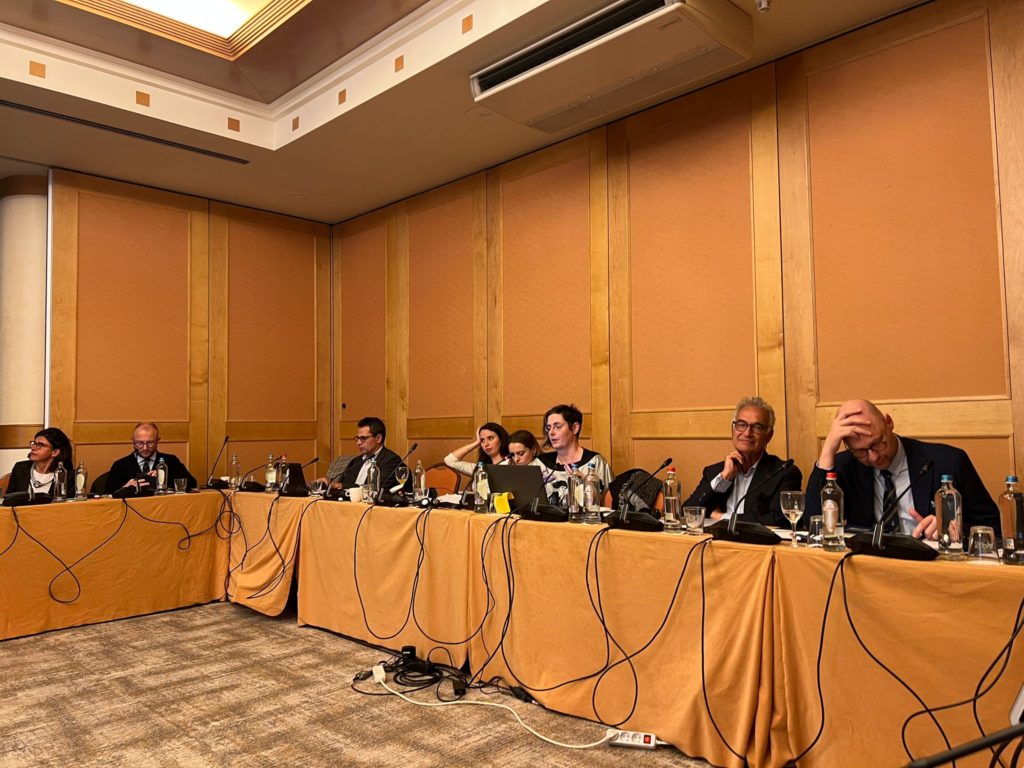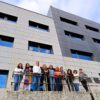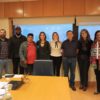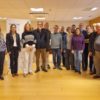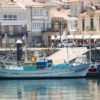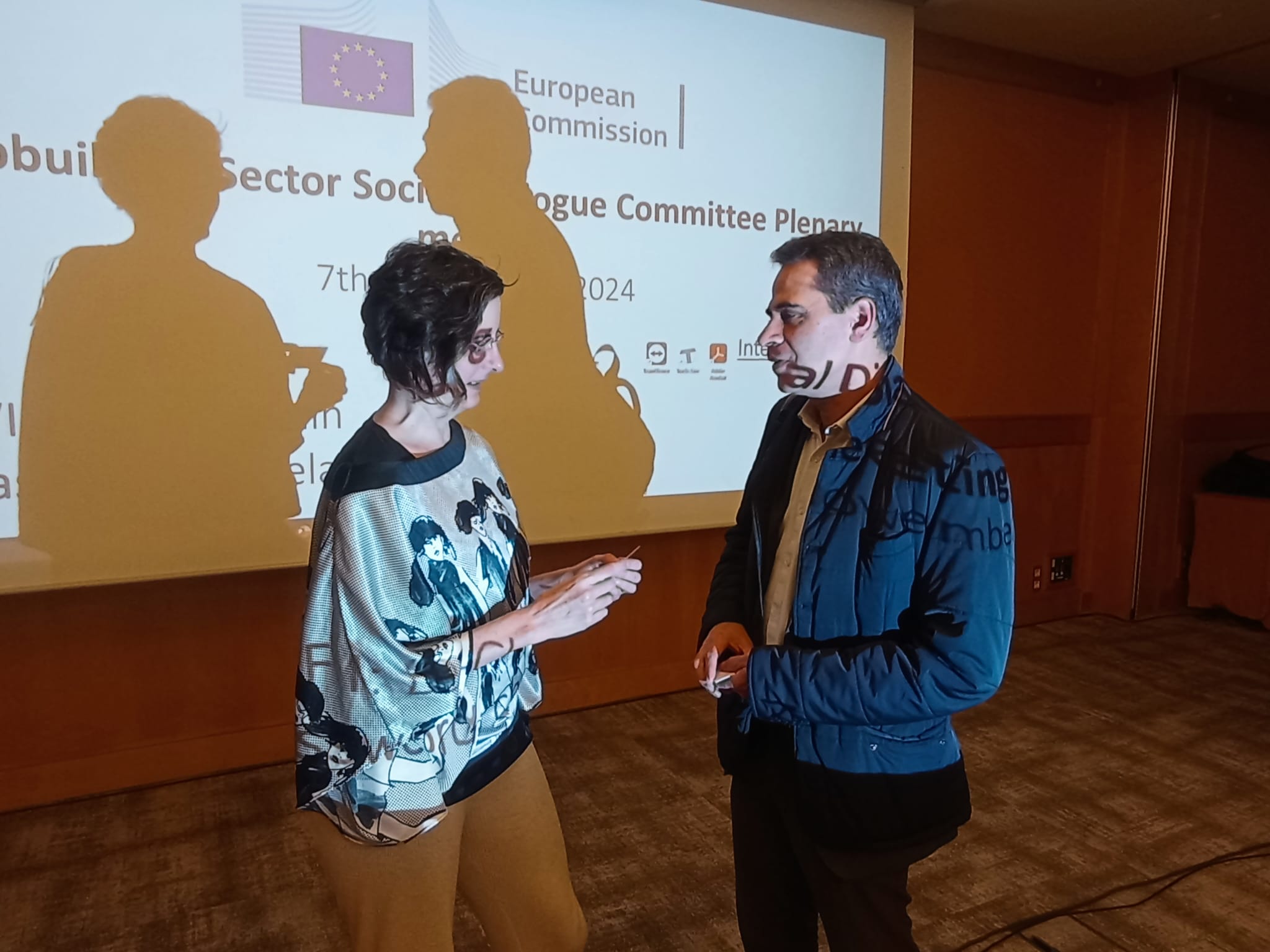
Cetmar presents in Brussels the first results of the Flores project on training needs in the marine renewable energy sector (ORE)
- The European consortium, which estimates that 124,000 new vacancies will be generated in Europe in 2030, works on improving the skills of current workers and preparing the future workforce, with a focus on training
- The head of Cetmar’s Training area, Lucía Fraga, presented the progress of the project at the meeting of the working group of the Sectoral Social Dialogue Committee on Shipbuilding, Ship Repair and Ship restructuring
The first results of the Flores project, “Vision for the future of marine renewable energies”, were presented this week in Brussels by CETMAR, which dependant on the Regional Department for Marine Issues, coordinates the project that works for the development of tools and activities that strengthen the ORE skills.
During a meeting of the working group of the Sectoral Social Dialogue Committee on Shipbuilding, Ship Repair and Ship restructuring, the head of Cetmar’s Training area, Lucía Fraga, reported on the progress of the project, financed by the European Erasmus Plus program. The meeting, organized by SeaEurope and IndustriAll in the framework of the social dialogue promoted by the European Commission, addressed common interests and needs for shipbuilding and ORE.
In addition, preliminary results of the “Study to support skills development for the blue economy,” promoted by the EU Directorate General for Maritime Affairs and Fisheries -DG Mare were presented; although all interested parties are still contributing through a survey.
Since January 2023, the 14 partners of the FLORES consortium have been working to promote career paths within the ORE industry, to expand specialized training opportunities and to create an EU Skills Observatory.
This sector currently accounts for around 80,000 jobs in Europe, and experts estimate that up to 124,000 vacancies will be generated by 2030 in the EU. Meeting this growing demand for qualified and appropriately skilled professionals is a significant challenge addressed by the FLORES project, which reinforces the activity of the Pact for Skills.
The objective is to ensure that the training opportunities available in Europe are in line with the current and future needs of the marine renewable energy sector. After analysing the most demanded profiles and the training options, the consortium concluded that the ten most demanded occupational profiles, mainly with engineering background, are project managers and marine renewable energy technicians.
The Flores researchers also judged that qualifications in the sector are usually offered as a specialization rather than basic training, and that programs focus on roles supporting the value chain instead of the most demanded profiles _managers and technicians, which are disregarded by the training offer.
To contribute to the upskilling in marine renewable energies, and for the current workforce, the European consortium drives recycling and upskilling initiatives, promoting innovative approaches to lifelong learning. By means of a repository, the project collects available marine renewable energy training materials.
Furthermore, regarding the preparation of future workers Flores is developing five pilot actions to adapt the existing training materials and approaches in the different European sea basins to the European Pact for Skills. This month the last action, coordinated by the Association of Metal Industries and Associated Technologies of Galicia-Asime, will start preparing experts in the recruitment of talent and human resources.
The results are devised for implementation beyond the project itself. They include a map of the training offer in marine renewable energies, available and open to any organization willing to promote its training offer, and the creation of a community with stakeholders from different industries, framed in the European Pact for Skills.
Apart from CETMAR, the FLORES consortium includes Asime and the Industrial Campus of the University of A Coruña (UDC) in Spain. In Greece, there is the Hellas Research and Technology Center (Certh), and in Belgium Windeurope, the University of Ghent, the Association of European Trade Unions IndustriAll and the European Marine Board. Ireland is represented by the Aqualex Multimedia Consortium, the Netherlands by the companies Deftiq and Bluespring, Germany by the Submariner Network for Blue Growth, France by the Lycée Fulgence Bienvenüe and the Conference of Peripheral Maritime Regions, and Italy by the Maritime Technology Cluster (mareFVG).
This Project if financed with 700,000 euro from Erasmus Plus through the European Education and Culture Executive Agency (EACEA).
